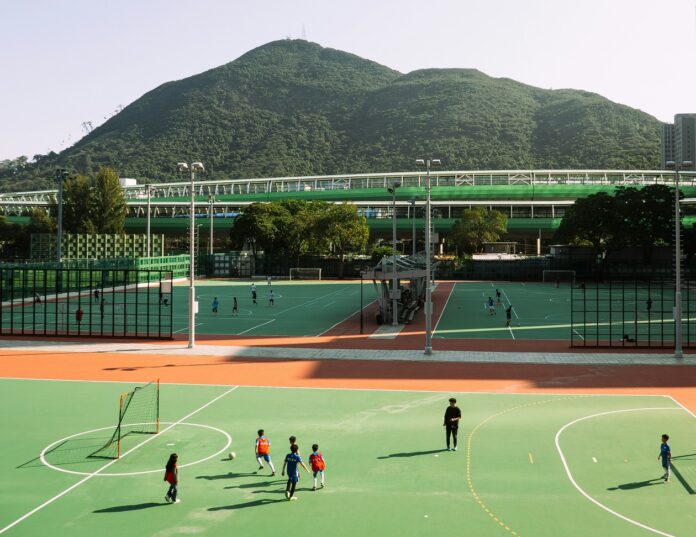Football schools are transforming the way young athletes develop their skills and passion for the game. With a focus on both technical training and personal growth, these institutions offer an environment where aspiring players can thrive. They’re not just about kicking a ball; they’re about nurturing talent and instilling values like teamwork and discipline.
Prestige Football Schools, for example, has become a trusted name in providing young athletes with world-class coaching and structured programmes designed to unlock their potential. By combining professional guidance with a supportive environment, they help students grow both on and off the pitch.
As we explore the world of football schools, we’ll uncover the various programmes available and the benefits they provide. From professional coaching to competitive opportunities, these schools play a vital role in shaping the future of football. Whether your child dreams of becoming a professional player or simply wants to enjoy the sport, understanding what institutions like Prestige Football Schools offer can make all the difference.
What Are Football Schools?
Football schools are specialised institutions dedicated to developing young athletes through comprehensive training programmes. These schools focus on enhancing players’ technical skills, tactical understanding, and physical fitness, while also prioritising personal development.
Football schools typically offer structured curriculums that include:
- Coaching Sessions: Professional coaches provide targeted training, helping students refine their skills across various aspects of the game.
- Competitions: Regular participation in matches and tournaments provides practical experience and helps students apply their training in real-game scenarios.
- Physical Conditioning: Understanding the importance of fitness, schools incorporate strength, agility, and endurance training into their programmes.
- Mental Skills Training: Emphasis on sports psychology prepares athletes for the mental rigours of competitive sports.
Additionally, football schools aim to cultivate valuable life skills. We teach students about teamwork, discipline, and resilience, all of which contribute to their overall growth as individuals and athletes.
Overall, football schools serve as a vital bridge, connecting aspiring young footballers with the training, mentorship, and opportunities necessary to excel in the sport.
Benefits of Football Schools
Football schools provide young athletes with numerous advantages, enhancing both their sporting abilities and personal development. They focus on skill enhancement and character building, crucial for success both on and off the pitch.
Skill Development
Football schools prioritise the systematic development of technical skills necessary for the game. They offer tailored coaching sessions from experienced trainers, focusing on essential elements such as ball control, passing accuracy, and tactical awareness. Regular competitive matches provide practical experience that reinforces skills and strategies learned in training. Advanced strength and conditioning programmes improve physical fitness, ensuring athletes perform at their best during competitions. We emphasise the importance of regular assessments to track progress, allowing students to address weaknesses and refine their skills effectively.
Personal Growth
Football schools contribute significantly to personal growth, instilling values such as teamwork, discipline, and perseverance. Through collaborative training exercises and team-building activities, students learn to work effectively with others and develop strong communication skills. The structured environment fosters resilience, teaching students to handle pressure and setbacks gracefully. Mental skills training complements this growth, helping students build focus, confidence, and emotional intelligence essential for success in sports and life. Ultimately, football schools not only shape exceptional athletes but also well-rounded individuals prepared for future challenges.
Types of Football Schools
Football schools fall into distinct categories, each designed to meet specific needs and goals of aspiring athletes. These schools offer various programmes tailored for skill enhancement and personal development.
Academy Programmes
Academy programmes provide elite training environments for young athletes. We focus on comprehensive development through structured curriculums that include advanced coaching sessions led by experienced trainers. Players engage in intensive skill drills, including ball control and tactical execution, through regular practice and competitive matches. These academies often collaborate with professional clubs, offering pathways to higher-level training and opportunities for scouts to assess talent. Alongside technical training, we prioritise mental resilience, teamwork, and discipline, ensuring well-rounded growth both on and off the pitch.
Leisure and Community Programmes
Leisure and community programmes engage young players in a more relaxed environment. We promote football as a tool for social interaction and skill development, catering to various skill levels. These programmes focus on creating enjoyable experiences, where children learn the fundamentals of the game through fun activities and matches. Emphasis on teamwork and fair play fosters a sense of belonging and community spirit. By prioritising inclusivity, we ensure that every child can experience the joy of football, regardless of their starting point or aspirations in the sport.
How to Choose the Right Football School
Selecting the ideal football school requires careful consideration of several key factors. We explore essential criteria, including location, facilities, coaching staff, and curriculum.
Location and Facilities
Location plays a crucial role in accessibility and convenience for students and their families. Consider schools situated near home or with easy transport links. Facilities should meet training requirements, including well-maintained pitches, gymnasiums, and recovery areas. Adequate resources, such as video analysis rooms, can enhance learning and performance. Researching the quality of these facilities aids in ensuring a comprehensive training experience.
Coaching Staff and Curriculum
Coaching staff expertise significantly impacts player development. Assess their qualifications, experience, and coaching philosophy. Schools with coaches from professional backgrounds often provide invaluable insights and guidance. Additionally, examine the curriculum to ensure it encompasses both technical skills and personal development. A well-structured programme should include tactical training, physical conditioning, and regular competitive matches. Thorough analysis of these elements guarantees a holistic approach to athlete training, preparing them for future challenges on and off the pitch.
Conclusion
Football schools play a pivotal role in shaping the future of young athletes. By offering structured training programmes that enhance both technical skills and personal growth, they create an environment where aspiring players can thrive. The values of teamwork discipline and perseverance instilled in these schools equip students not just for the game but for life’s challenges ahead.
As we consider the diverse options available from elite academies to community programmes it’s clear that there’s a football school suited for every young athlete’s needs. With the right guidance and support these institutions can help our children reach their full potential both on and off the pitch. Investing in a football school is investing in a brighter future for our young talents.






